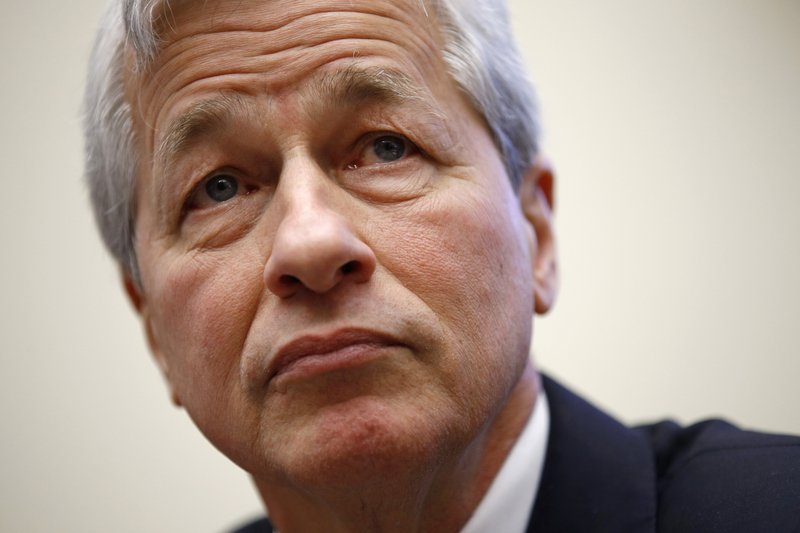Edited by: TJVNews.com
It appears that the economic morass that has gripped the United States for the past year due to the pandemic lockdowns may be in the proverbial rear view mirror. For the last year, the US economy was virtually paralyzed, as companies and businesses of all sizes shuttered their doors while employees were laid off as a result of the Covid-19 virus.
Early Wednesday, it was reported that JPMorgan Chase CEO Jamie Dimon distributed his company’s annual letter to shareholders and the news gave more than a glimmer of hope to those suffering financial loss. According to the Business Times web site, Dimon’s letter carries a great deal of clout as it is widely read on Wall Street and in other financial sectors. The report indicated that the letter is “not just an overview of the bank’s business but also covers Mr Dimon’s thoughts on everything from leadership lessons to public policy prescriptions.”
Predicting that the US economy will most probably see a remarkable boom, Dimon said, “I have little doubt that with excess savings, new stimulus savings, huge deficit spending, more QE, a new potential infrastructure bill, a successful vaccine and euphoria around the end of the pandemic, the U.S. economy will likely boom. This boom could easily run into 2023 because all the spending could extend well into 2023.”
Dimon’s letter took on a more sanguine tone than the one that he issued last year which warned of “a bad recession combined with some kind of financial stress similar to the global financial crisis of 2008,” as was reported by Forbes.
The JP Morgan chief justified his predication by saying that such a boom could see high stock valuations, but not the price of US debt, given the “huge supply” soon to hit the market, according to the Business Times report. Business Times reported that Dimon wrote in his letter that a possibility exists that an increase in inflation rates will be “more than temporary” which would lead to the Federal Reserve feeling compelled to act in an aggressive manner as it pertains to raising interest rates.
“Rapidly raising rates to offset an overheating economy is a typical cause of a recession,” he wrote, but he hopes for “the Goldilocks scenario” of fast growth, gently increasing inflation and a measured rise in interest rates, as was reported by Business Times.
Forbes reported that Dimon also called for more spending on education and infrastructure, which “may very well mean higher taxes for the wealthy.”
The Business-Standard web site reported that Dimon also pointed to US consumers, who used stimulus checks to reduce debt to the lowest level in 40 years and stashed them in savings, giving them — like corporations — an “extraordinary” amount of spending power once lockdowns end. The latest round of quantitative easing measures will have created more than $3 trillion in deposits at US banks, a portion of which can be lent out, he said.
Dimon cited competition from an already large shadow banking system and fintech companies, as well as “Amazon, Apple, Facebook, Google and now Walmart” according to the Business Times report. He added that the these nonbank competitors should have more stringent regulations imposed upon them and that their outsized growth has “partially been made possible” by avoiding banking rules.
The JP Morgan chief also made reference to the economic gravitas of China which he said views America as “losing ground in technology, infrastructure and education – a nation torn and crippled by politics, as well as racial and income inequality – and a country unable to coordinate government policies (fiscal, monetary, industrial, regulatory) in any coherent way to accomplish national goals.” He added that “Unfortunately, recently, there is a lot of truth to this.”
Business Times also reported that Dimon said in his 66-page letter that he sees a “huge opportunity in sustainable and low-carbon technologies and businesses” and plans to evaluate clients’ progress according to reductions in carbon intensity – emissions per unit of output – which adjusts for factors such as size.





